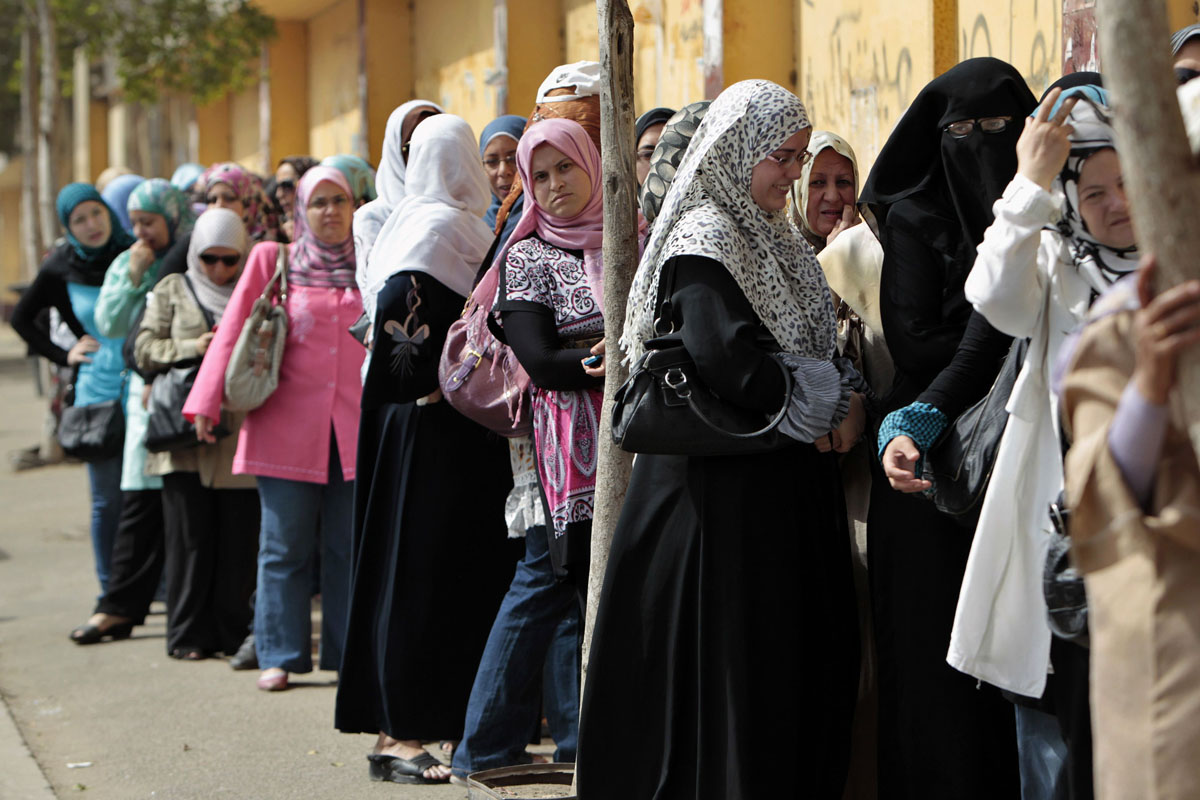Pro-government incumbent Makram Mohamed Ahmed was reelected head of the Egyptian Press Syndicate Sunday after beating independent candidate Diaa Rashwan, known for opposing the anticipated transfer of power from President Hosni Mubarak to his son, Gamal.
Following the vote, Mohamed el-Sayed, head of the judicial committee mandated with overseeing elections, announced that Ahmed had garnered 2419 votes to Rashwan’s 1561 in a run-off vote following a first round on 6 December in which neither candidate secured an outright majority.
Ahmed’s supporters celebrated the landslide victory, chanting “we don’t want change” and “we kicked the banned organization”–the latter being a reference to Rashwan’s alleged sympathies with the Muslim Brotherhood, Egypt’s largest opposition group.
Ahmed, who will now begin his fourth non-consecutive term as Press Syndicate head, has accused Rashwan in the past of “spearheading” a Brotherhood plan to take over the syndicate.
“Rashwan is no longer a Nasserist as he claims,” Ahmed told reporters Sunday. "He has become a disguised member of the brotherhood."
Rashwan, 49, an expert on political Islam at the semi-official Al-Ahram Center for Political and Strategic Studies, promised in his campaign to secure the syndicate’s financial independence, raise journalists’ monthly wages and abolish a law allowing for the imprisonment of reporters and editors found guilty of certain "publishing offenses."
The elections were widely seen as a contest between a new generation of journalists aspiring for change and independence on the one hand, and journalists affiliated with state-run newspapers hoping to preserve the status quo on the other.
“We’re just a bunch of young guys confronting the state,” Rashwan’s supporters chanted after the results were declared.
“It’s a rehearsal for 2011 presidential elections,” Gamal Fahmy, prominent opposition journalist and syndicate board member, told Al-Masry Al-Youm. “The government mobilized to support its candidate because it could not tolerate the idea of having a candidate who opposes the inheritance of presidential power at this crucial time.”
Rashwan is known for being a vocal opponent of the notion of father-to-son presidential succession–a widely expected scenario in Egypt. The Nasserist-leaning writer has published numerous articles critical of the small circle of businessmen associated with presidential scion Gamal Mubarak, who currently serves as deputy secretary-general of the ruling National Democratic Party while also heading up the party’s highly influential Policies Secretariat.
Independent observers attribute Ahmed’s triumph to the state’s strategy of mobilizing hundreds of journalists from government-run newspapers through a combination of vote buying and intimidation.
Last week, independent newspapers uncovered a letter sent by the chief editor of the official Middle East News Agency to the agency’s correspondents abroad. In the letter, the chief editor commands correspondents to return to Egypt–pledging to fully reimburse the cost of their flight tickets–in order to participate in syndicate elections.
On election day, busloads of journalists from state-run newspapers, tasked with casting ballots for Ahmed, were seen outside the syndicate’s premises in downtown Cairo.
“Taxpayers’ money was used to support the pro-government candidate,” said Ahmed Fawzy, program director at the Egyptian Association for Community Participation Enhancement, an independent NGO that monitors elections in Egypt.
“My editor-in-chief directly ordered us to vote for Ahmed or else face negative consequences,” said Mahmoud Kheirallah, senior editor at state-owned weekly Radio and Television magazine.
Journalists at flagship government daily Al-Ahram–who account for almost one third of the syndicate’s electoral power–spoke of an "orchestrated strategy" to mobilize support for Ahmed.
“Prior to the elections, we were constantly warned by our senior editors against voting for Rashwan, who was consistently depicted as lacking the necessary connections to safeguard journalists’ interests,” said one Al-Ahram reporter on condition of anonymity.
Ahmed’s campaign also relied on his portrayal as the candidate with strong ties to the government–considered a prerequisite for securing material benefits for Egypt’s journalists.
After meeting with Prime Minister Ahmed Nazif late last month, Ahmed announced that the government would raise a monthly LE530 "training allowance"–to which all registered journalists are entitled–by an additional LE80. The pro-government candidate also promised to provide journalists with more than 3,000 subsidized apartments in the capital’s 6th of October district at favorable rates of interest.
“I voted for Ahmed because I know he can solve my problems by utilizing his links with senior government officials,” said Yasser Abdel Hameed, a journalist at government daily Al-Ahram Al-Masaei.
“As long as all of Egypt’s professional syndicates lack financial independence from the state, the pro-change and opposition groups in every syndicate will remain hostages to the regime,” said Fawzy.
Ahmed, 74, was first elected to the syndicate board in 1968. Since then, he has held several senior positions at leading official publications, including Al-Ahram and weekly magazine Al-Mussawar, serving as editor-in-chief of the latter for more than 20 years. He has held the post of syndicate president three times in the past, from 1989 to 1993; from 1997 to 1999; and from 2007 to 2009.




